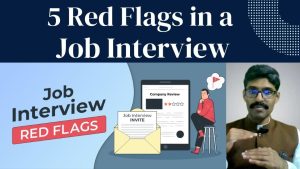The Insider Guide to Careers
Insider information, secrets and tips about getting hired and building careers. For employees and job candidates.
The first question most employees face is either “Can you please introduce yourself” or “Tell me about yourself.” Answer this first question suitably, as it sets the tone for the rest of the conversation to follow. First, however, let us backtrack a bit and understand the philosophy of an interview process before you even begin the answer to this question.
Before the interview:
1) The recruiting psychology primer: During the first round of interviews, 10-15 applicants get shortlisted for every open position. Any selection process with a selectivity of more than one out of three is termed an “elimination process.” Since elimination processes are all about facing elimination for the smallest of reasons, one cannot afford any mistake, however trivial.
Returning to the question in the first paragraph, you have to understand the psychology of the recruiter before trying to introduce yourself. First, you are trying to impress the recruiter and grab their attention. You are a salesperson selling yourself to the recruiter. Secondly, you are trying to prove that you are not an average applicant but the best applicant. No recruiter wants a person in the 50th percentile; they only target people in the top 5 percentile (one in twenty) or, at rarely, somebody in the top 10 percentile (one in ten).
In some scenarios, the interviewer or recruiter is looking at your resume for the first time and has no idea what is in it. As you talk, they are probably perusing your resume to get the summary. They will look at your education and where you have worked. Hence don’t waste your time going through the educational qualifications. You want to focus on the workplace and the different skills you have gained by working. Work experience, whether internships or full-time experience, is far more valuable to a company than educational qualifications.
2) The Prework: Now that you know you must impress the recruiter, you must do some prework before going for the interview.
During the interview:
Divide your response into four parts:
Part 1 – Prelude:
Make small talk as soon as you meet the interviewer. You have a minute to break the ice. Talk about the weather, traffic, and something anybody can quickly agree is good or bad. Avoid contentious topics like politics or religion. The goal is to establish that your views align with the recruiter. Even a bit of consonance can help you leverage the effect of similarity bias – people tend to view favorably those who look or think like them.
Talk about which location you are from and how you have either changed or not changed to fit into the climate of the place you are studying or working in. You have already begun to answer the walk me through your resume question without the interviewer asking for it.
Part 2 – Skill expectations:
Talk about what brought you to your university or your most recent job. Talk about your job expectations. Make sure you use the skills (as defined in the JD) when you talk. As and when the interviewer hears the JD skills from your lips, the person is beginning to consider if you are the best possible fit for the role and if you may meet the expectations 100%. Their mindset is already starting to transition from elimination to selection.
Part 3 – Experience:
It is one thing to claim skills and another to give targeted examples of where you learned or utilized them. Pick up examples of STAR stories in the last two years, preferably at most four years prior. To reiterate, you go beyond two years if you have accomplished little of late. Refrain from rambling about your STAR stories. Instead, give a 10-20 second rundown of the STAR stories and show them how that fits with the skills they seek. Additional expostulation of each example is unnecessary, as the interviewer will always ask follow-up questions if needed.
If you are a student, talk about your internships, positions of responsibility in extracurricular events, and projects done with your professors. Position your answers in terms of not just technical skills but also people skills like teamwork, collaboration, leadership, etc.
Part 4: Positive closure:
It would help if you closed the answer by reiterating that you have done your homework about the company by talking to employees and going through the Job description. You want to create an impression that you are not sitting for multiple interviews simultaneously and trying to game the interview process. It should be evident to the interviewer that his company is your dream company.
The final sentence of your answer should follow this script:
“I have gone through the job description of your company in detail. My skills in job skills A, B, and C are an excellent fit for your company. In addition, I have talked to employees in our company (Employee X1 and Designation Y1, Employee X2 and Designation Y2). I sense a good match in terms of job skills and cultural expectations. Since this is my dream company, please consider my candidature favorably.”
In case there is a significant mismatch between the JD skills and your skills, you can both acknowledge the gap and suggest a plan to combat it by saying something like,
“At present, my skills may not be an exact match for the company, but I love to take up new challenges and learn very quickly on the job. If only you give me a chance, I assure you that it will be the best investment you have ever made.
This answer will assure the interviewer that you could be worth betting on.
Things to avoid:
The interviewer cares two hoots about where you were born, where you did your schooling, etc. The most crucial question is whether you are worth investing the interviewer’s time through subsequent questions. The more you talk about random things in your life which has no connection to the job expectations, the less time you have to talk about relevant things, which will help you get brownie points.
For more, also follow my Substack and Careerbolt channels.



